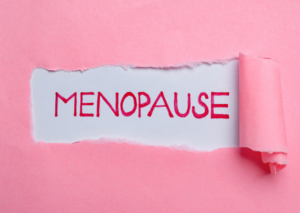Menopause is a significant life transition that brings about hormonal changes and physical transformations in women. Whilst what you eat won’t completely put an end to all these shifts & symptoms, it can help reduce the intensity and make them feel more manageable.
In today’s blog post, we’ll explore the role of nutrition during menopause, highlighting foods to incorporate and those to avoid for a smoother transition.
We know Menopause typically occurs in women between the ages of 45 and 55, however it can start earlier or later. During this phase, estrogen levels decline, leading to a range of symptoms such as hot flashes, mood swings, weight gain, and bone density loss. Nutrition can play a pivotal role in alleviating some of these symptoms and promoting overall health and vitality.

Foods you should focus on including in your diet:
Calcium-Rich Foods: With declining estrogen levels increasing the risk of osteoporosis, incorporating calcium-rich foods is essential for maintaining bone health. Things like; dairy products i.e milk, yogurt, and cheese, as well as leafy greens such as kale, broccoli, and spinach.
Vitamin D Sources: Vitamin D aids in calcium absorption and supports bone health. Include foods rich in vitamin D such as fatty fish (salmon, mackerel), egg yolks and mushrooms.
Phytoestrogenic Foods: Phytoestrogens are plant-based compounds that mimic estrogen in the body which can help lighten some menopausal symptoms. Incorporate foods like soybeans, tofu, tempeh, flaxseeds, sesame seeds, and whole grains into your diet.
Omega-3 Fatty Acids: Omega-3 fatty acids have anti-inflammatory properties and support heart health. Include sources like fatty fish (salmon, sardines), walnuts, chia seeds, and flaxseeds in your meals.
Fiber-Rich Foods: Fiber aids in digestion, promotes satiety, and helps regulate blood sugar levels. Consume fiber-rich foods such as fruits, vegetables, whole grains, legumes, nuts, and seeds to support digestive health and manage weight.
Lean Proteins: Lean protein sources provide essential amino acids necessary for muscle maintenance and repair. Opt for lean meats like poultry, fish, and lean cuts of beef or pork, as well as plant-based sources like tofu, tempeh, lentils, and beans.
Hydration: Stay hydrated by drinking plenty of water throughout the day. Adequate hydration can help alleviate symptoms like hot flashes, dry skin, and vaginal dryness.

Foods to keep to a minimum:
Processed Foods: Processed and refined foods often contain added sugars, unhealthy fats, and preservatives that can exacerbate inflammation and contribute to weight gain. Limit your intake of processed snacks, sugary beverages, white bread, and packaged meals. Whole food for the win, EVERY TIME!
Excessive Caffeine: While moderate caffeine intake is fine, excessive consumption can exacerbate symptoms like hot flashes, night sweats, and insomnia. Limit your intake of caffeinated beverages like coffee, tea, and energy drinks, especially later in the day. When you drink coffee or anything with caffeine, it takes about 5 hours for half of it to leave your bloodstream.
Spicy Foods: Spicy foods may trigger hot flashes and exacerbate symptoms in some women. If you’re prone to hot flashes, consider reducing your consumption of spicy foods like chili peppers, hot sauces, and curries.
Alcohol: [Oh no] Alcohol can disrupt sleep patterns, exacerbate mood swings, and contribute to weight gain. You don’t need to completely remove it, but try limiting your alcohol intake and opt for healthier alternatives like sparkling water with fresh fruit or mocktails.
High-Sodium Foods: Excessive sodium intake can lead to bloating, water retention, and hypertension. Limit your consumption of high-sodium foods like processed snacks, canned soups, deli meats, and fast food.
Successfully managing menopause requires adopting a balanced nutritional strategy. By prioritizing foods rich in calcium, vitamin D, phytoestrogens, omega-3s, fiber, and lean protein, while limiting processed, caffeinated, spicy, alcoholic, and high-sodium options, women can ease symptoms and enhance overall well-being. Stay attuned to your body’s signals, keep hydrated, and seek personalized advice if needed. Embrace this phase of life with nourishing choices that bolster health, energy & vitality.





